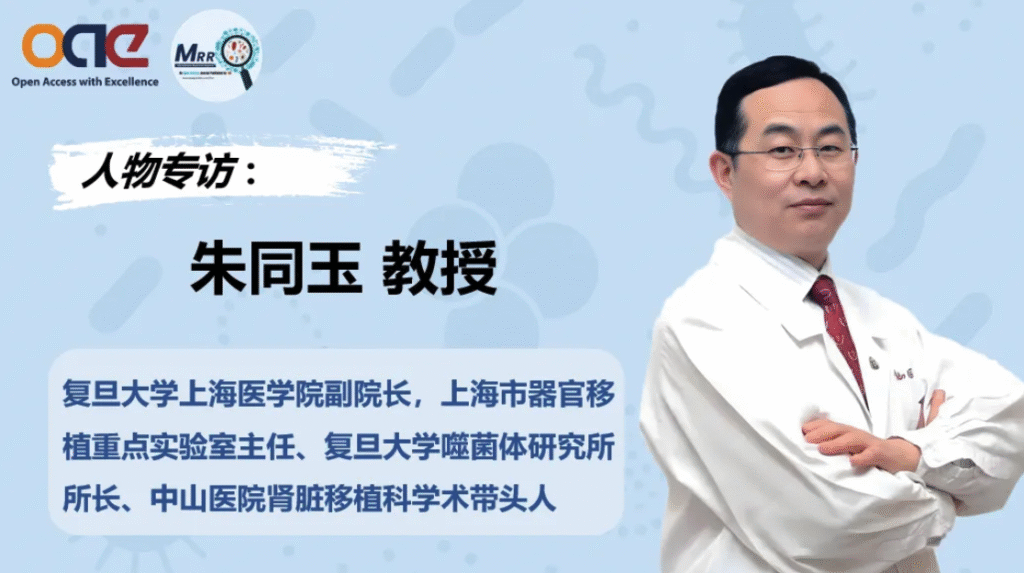In this issue of our Featured Interview, Microbiome Research Reports is honored to speak with 朱同玉, Vice Dean of 复旦大学上海医学院, Director of the 上海市器官移植重点实验室, and Director of the 复旦大学噬菌体研究所.
Professor Zhu has long focused on the prevention and control of drug-resistant bacteria, phage therapy, and microbial interaction mechanisms, and is actively exploring the use of artificial intelligence and synthetic biology to engineer bacteriophages for treating resistant infections.
In this interview, Professor Zhu provides in-depth insights into the challenges of researching and controlling “superbugs,” shares his team’s clinical experience using phage therapy in more than 200 complex infection cases, and analyzes the clinical role and development potential of phages. He also introduces cutting-edge work on customized phage design using AI and synthetic biology, discussing both the advantages and challenges of this approach in improving efficacy and precision.
Notably, Professor Zhu also actively engages in science communication through platforms such as 抖音, using simple and accessible language to share frontier scientific knowledge with the public — earning widespread attention and positive feedback.
Interview Questions
Q1. Could you start by introducing the main research areas that you and your team are currently focusing on? What is the clinical significance of this work?
Q2. “Superbugs” have become a topic of great concern. Could you talk about the main challenges in researching and controlling these drug-resistant bacteria?
Q3. In addition to traditional antibiotics, you and your team are exploring the potential of phages and microbial interactions. How do these studies offer new perspectives on understanding and combating drug resistance?
Q4. Your team has treated over 200 cases of complex drug-resistant infections. In your view, what is the clinical role of phage therapy — is it a “last-resort” treatment, or does it have the potential to become a routine therapeutic option?
Q5. By integrating artificial intelligence and synthetic biology, your team is exploring customized phage therapies. How do you view the potential of these new technologies in improving treatment efficacy and precision? What are the major challenges?
Q6. You’ve gained a lot of attention by sharing science communication videos on Douyin. What inspired you to start creating short science videos? And what have you learned or experienced during this process?

